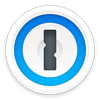What tips do you have to disconnect when working remotely?
Be sure to have an active social life outside of the home. Even if you just do a routine walk through the neighborhood, that is enough to disconnect from work. Have a normal work routine that allows you to distinguish work time and your off time.
Finding and protecting a work-life balance is important for the remote worker to be able to disconnect. Tips for establishing a work-life balance include proactively mastering your calendar. Plan out your schedule by blocking times for specific activities. This includes planning free time. Once you have established calendar rules, stick to them. Establishing a strategy for answering emails also helps to disconnect by alleviating the pressure to check your inbox during established non-working hours.
I have a room where I work, a home office. When I enter the room then I’m working, and when I’ve finished for the day I simply shut the door on it. This would work better if I didn’t have a phone of course!
I try to plan something for right after work, even if it’s just going for a walk. I think it’s important to close my laptop at the end of the day and mean it. It can be tough to stick to working hours when your home is your office, so definitely finding the right way to “end” your day has been really powerful for me in disconnecting.
Once you’re done for the day, really try your best to be done for the day. It’s tempting to check in on your work email or that latest project, but that type of habit can quickly lead to burnout. It can help to keep two distinct spaces in your home, if possible: one primarily for work, and the other for everything else; this helps keep a mental separation as well as a physical one.
Personally I’m a great fan of push notifications. They allow me to take more time “off” while being available for the team at all times. Often I need to respond to 4-5 yes/no questions in the evening without having to stay at the office. Having my messengers online on my phone and notifications sent to my smart watch, I can sit down and watch some series or even grab a drink with friends, and simply reply for a moment to a team member who can continue working afterwards.
Breaking down the day into a “productive and focused working time” and “simply being available” is a great combination that works for me and achieves more, as long as people are aware that they shouldn’t nag me all the time and only reach out in case of a problem or a blocker.
Develop good habits and remember that it’s OK to switch off sometimes. Also if you’re stuck on something or you have worked too many hours, it’s unlikely that you are being productive. You have the opportunity to go and do something else, clear your mind, and then try again. I think those are things that should apply to anyone in their work, remote or not.
I think it’s pretty similar to working non-remotely. Different people have different preferences, but I am quite outdoorsy and I like to move. Go for a run/walk. Do something creative. Take a vacation. It’s a must. I also like to hang out with my friends and talk about nothing and everything.
It’s very difficult to do, but extremely important. I try to have time with my family and friends as a regular part of my day that doesn’t involve technology.
Treat your remote workday just like you would an in-person workday—you have a start time and an end time—and set boundaries to ensure that you’re not allowing work to leak into your personal life.
I make time to exercise daily. I do ten miles on my bike each day at sunset on a bike trail near my house. I also bought a sauna and spend a bit of time in it each night. The intense heat and steam has a really calming and stress-melting effect on me.
Whenever I find that I am carrying stress with me throughout the day or after-hours, I solve the immediate problem, but then tackle whatever is happening in my organization that allowed stress to get to me in the first place. It’s taken years of iterative improvements, but these days, I have very little stress in my life – and in fact I have less as we’ve grown large
My last trip I uninstalled Asana and Slack from my phone and only a few key team members could call me in an emergency. If those apps were on my phone, I’m sure I couldn’t help myself to see what was going on.
When working remotely, it can help to set designated times for work. You can still retain flexibility, obviously, but working at certain times each day (such as when the kids are in school or when you are least likely to be interrupted) will create productive work habits while helping you to avoid the guilty compulsion to always be working. It can also help to have a designated work space, such as a home office or a coworking space. When you’re there, you will know it’s time to work; outside this space, you can put work away and focus on the other aspects of your life.
Don’t work in your house all day long. Work in a coffee shop or in a co-working space if you can. If you can’t, then have a dedicated spot in the house that is only used for work. When you’re at that spot (basement, spare bedroom, corner of the kitchen), then that’s when you’re “at work”. When you’re not at that spot, then you’re not working.
Set rules and boundaries for yourself. Have a way to signal that you’re taking a break or done for the day. I have a separate room for my office, so it’s easier to have some physical distance between myself and my computer. I can close the door to the office as a signal to myself. I recommend building some signals or routines into your work that remind you when you’re “done.”



















